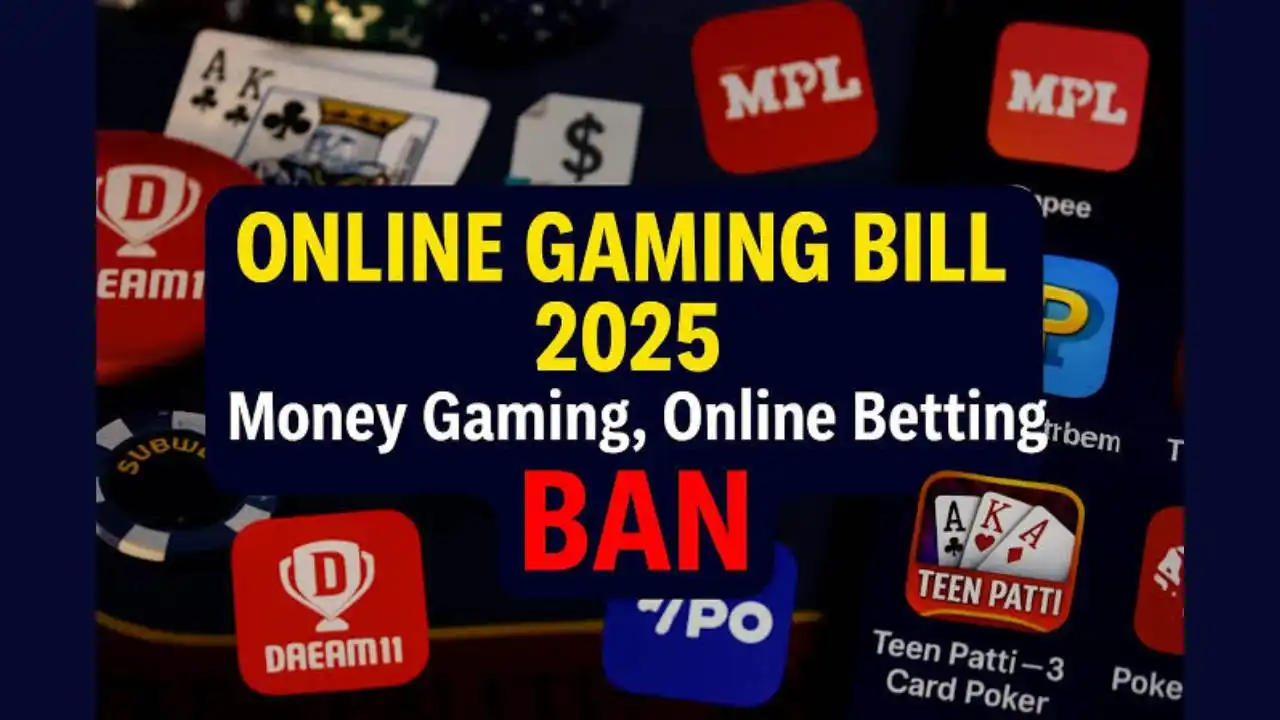New Delhi, September 3, 2025 – The nationwide prohibition on real-money online gaming, now enacted into law, has unleashed a sweeping crisis across both the gaming and fintech industries. From major operators to payment facilitators, the fallout has been immediate and staggering.
Industry in Turmoil: Closures & Job Cuts
Leading Platforms Impacted
Top players including Dream11, MPL, PokerBaazi, My11Circle, Zupee, WinZO, Probo, Games24x7, GamesKraft, 99Games, KheloFantasy, Adda52, and Paytm First Games have suspended all real-money gaming services in line with the law.
Dream11, considered India’s largest fantasy sports provider, reportedly saw 95% of its earnings disappear overnight.
Layoffs and Workforce Strain
MPL has announced layoffs affecting nearly 60% of its India staff—about 300 out of 500 employees—through an official internal message.
Both Games24x7 and Baazi Games are reducing headcount by half.
Recruitment firm CIEL HR reports over 2,000 professionals from the sector are actively seeking employment.
Industry-wide estimates suggest more than 200,000 jobs across 400+ companies are in jeopardy.
One employee from Mumbai shared the emotional toll, saying: “It took me a decade to find some financial stability… now this uncertainty is impossible to explain to my family.”
Financial Repercussions
Sectoral bodies caution that the government could lose close to ₹20,000 crore annually in GST and tax collections.
The extended ecosystem—including advertising agencies, tech vendors, and content producers—faces severe contraction.
Foreign Direct Investment commitments worth up to ₹25,000 crore now hang in the balance.
Sky8Pay’s Collapse & Reinvention
Previously the dominant payments channel for real-money gaming, Sky8Pay handled as much as ₹200 crore in daily flows. The ban eliminated its core business, forcing an 80% downsizing from 450 employees to barely 100. The company is wholly owned by Streamline Money.
Sky8Pay’s CEO, Rishi Wadhwa, explained:
“In just two weeks, our real-money gaming transactions shrank from peak highs to nearly nothing. At one point, we processed up to ₹200 crore per day for compliant platforms. The prohibition compelled us to cut 80% of our team and reorient as a Transaction Service Provider (TSP), partnering with banks to detect and block dubious gaming payments while safeguarding legitimate ones. It’s a painful transition, but we are determined to support a responsible ecosystem shift.”
Sky8Pay has now repositioned itself to collaborate with banks as a TSP, concentrating on monitoring and blocking illicit gaming-related transactions.
At the same time, it will expand services for its utility, edtech, and e-commerce clients, having completely stopped payment processing for gaming firms.
Payment Gateways, Banks & Fintech Disrupted
Real-money gaming accounted for 15–20% of payment volumes at many gateways, and up to 40–50% for some players.
Processors including Razorpay, PayU, Cashfree, Paytm, Easebuzz, and PhonePe are now scrambling to replace the lost business.
Razorpay and Cashfree say their impact is limited thanks to broader client bases.
Yes Bank, however, is seen as the most vulnerable, allegedly handling about 60% of real-money gaming flows through nodal accounts.
Experts caution that transaction activity could shift to unregulated grey markets, including overseas platforms and cryptocurrencies, heightening compliance and enforcement challenges.
Legal Framework, Sanctions & Opposition
The Law & Punishments
The Promotion and Regulation of Online Gaming Bill, 2025, cleared by Parliament in late August and signed into law around August 22, bans all forms of real-money online gaming—regardless of whether they are skill- or chance-based.
Operators and enablers now face up to 3 years in prison and fines of ₹1 crore.
Advertising breaches can attract 2 years imprisonment plus fines up to ₹50 lakh, with repeat offenders facing tougher, non-bailable charges.
Importantly, banks and payment processors are also liable for criminal action if found handling RMG transactions.
Industry Reaction
The All India Gaming Federation (AIGF) and other groups have appealed to Home Minister Amit Shah, warning of job losses and annual revenue damage of ₹20,000–23,000 crore, while cautioning that players will migrate to illegal markets.
Karnataka IT Minister Priyank Kharge called the prohibition short-sighted, highlighting risks to employment, innovation, and security.
Gaming startup A23 has already filed a legal petition in the Karnataka High Court, contending that banning skill-based games is unconstitutional.
Banks & Fintech Strategy Meeting – 29 August
On August 29, key banks and fintech companies convened to align on enforcement strategies. Deliberations covered transaction surveillance, compliance restructuring, and blocking suspicious gaming payments.
Attendees included top gateways and banking institutions, laying the foundation for TSP-led monitoring by firms like Sky8Pay.
Kerala’s Move: Tax Clarity, Not Resistance
While the central law remains binding, Kerala has issued an Ordinance amending the State GST Act to specify how GST applies to online gaming, gambling, and horse racing. This measure aims to ensure clarity in taxation but does not challenge the national ban itself.
Final Outlook
The sudden outlawing of real-money gaming has reshaped India’s digital economy in weeks. Giants such as MPL and Dream11 are letting go of hundreds, while Sky8Pay—the backbone of payments—has eliminated most of its staff and is repositioning as a banking partner. Payment firms and fintechs are recalibrating to survive without RMG revenues amid rising compliance risks.
The law imposes strict penalties but has also sparked resistance, legal battles, and state-level clarifications. The future trajectory of India’s gaming and fintech industries remains deeply uncertain.
Ongoing Government Engagement
On September 1, IT Minister Ashwini Vaishnaw convened the first stakeholder meeting after the ban, emphasizing user protection and an orderly shift to the new regime. Authorities have hinted they may consider amendments to better define categories and close gaps.
